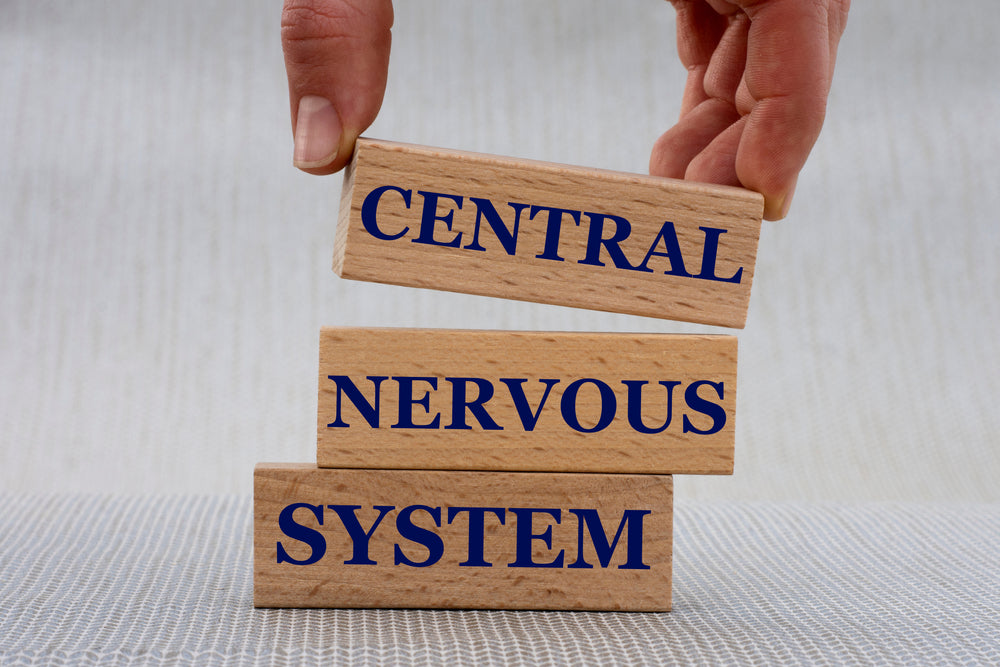Nicotine has a number of effects on the body and the psyche. In addition to the commonly known effects such as suppression of nervousness, stimulant effects and increase in adrenaline levels, it also affects the nervous system. Let's take a look at the effect in the nervous system and explain how the substance has been used for medicinal purposes.
How does nicotine affect the nervous system?
Nicotine originally comes from the tobacco plant and refers to a neurotoxin that the plant produces to ward off pests. Nowadays it is mainly found as an ingredient in cigarettes, but it can also be found in other products such as e-cigarettes, snus, chewing tobacco and snuff. It is a psychoactive agent that affects perception and causes certain physical reactions.
Once the substance is ingested through smoke or other means, it takes only a few seconds for it to reach the brain through the bloodstream. In the brain, nicotine binds to receptors and causes increased release of hormones such as adrenaline, serotonin and dopamine. Adrenaline causes blood pressure and heart rate to increase. Serotonin helps regulate our mood and appetite. Dopamine is popularly known as the happiness hormone and controls our emotional responses. Thus, consumers experience a mixture of relaxing and stimulating effects at the same time.
Nicotine effect in medical studies
Due to the different effects of the substance on the brain, nicotine has often been used in medical studies to investigate its effectiveness in certain diseases. For example, the neurotoxin has been used in patients suffering from Parkinson's disease. It was confirmed that the substance could alleviate symptoms in some patients, but researchers immediately warned of dangerous side effects of nicotine such as an increased risk of cancer. The actual results of the studies remain contradictory and a positive effect could not be clearly confirmed.
In addition, nicotine has also been tested in people with Alzheimer's disease. In Alzheimer's disease, there is a severe buildup of plaque in the brain, which gradually destroys brain tissue. Researchers found that a breakdown product of nicotine can reduce the formation. Since nicotine is highly addictive, researchers are now looking for a less harmful alternative to achieve the same results.
What other effects does nicotine have?
Besides releasing hormones in the brain, nicotine is known to have other effects on the body:
- Heartbeat becomes faster
- The blood pressure goes up
- The intestinal activity is increased
- A narrowing of the vessels begins
- The feeling of hunger is dampened
How is nicotine addictive?
The neurotoxin binds to receptors and thus triggers a reaction in the body and mind. How long nicotine remains in the body depends on the amount and strength taken. In order for the harmful substance to be broken down more quickly by the body, it forms more and more receptors that absorb the substance. Thus, nicotine intolerance develops, because the usual amount is now insufficient to cause the same psychological reactions. Smokers are forced to add ever greater amounts to the body.
Those who then attempt to quit smoking have to contend with the usual withdrawal symptoms. These include increased irritability, sleep disturbances and anxiety. To minimize withdrawal symptoms, many doctors advise a gradual smoking cessation. Snus, for example, can be used for this purpose, as it contains varying amounts of nicotine and these can be gradually reduced. Snus has less dangerous side effects than cigarettes, because it is not burned during consumption.
Conclusion - The medical effects on the nervous system remain questionable
Nicotine has been consumed for centuries, but its medical effects on the nervous system remain questionable. In the brain, the substance triggers an increased release of hormones that cause a physical reaction.
In patients with Parkinson's and Alzheimer's disease, it has been found to alleviate symptoms, but the exact mode of action has not yet been researched thoroughly enough to proclaim it as a cure. Furthermore, nicotine is associated with negative side effects, which is why its medical use remains controversial.




 Dieses Produkt schädigt Ihre Gesundheit und macht stark abhängig.
Dieses Produkt schädigt Ihre Gesundheit und macht stark abhängig.